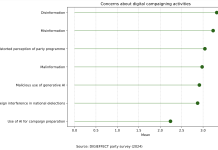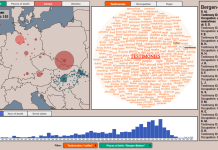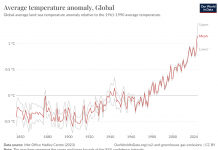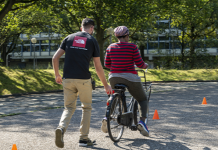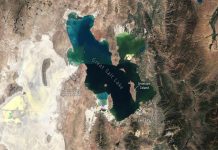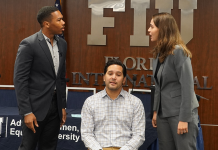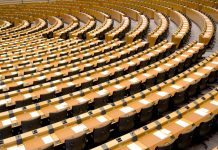Open Access Government produces compelling and informative news, publications, eBooks, and academic research articles for the public and private sector looking at health, diseases & conditions, workplace, research & innovation, digital transformation, government policy, environment, agriculture, energy, transport and more.
Home 2025
Archives
Fighting foreign information manipulation and interference
Highlighting the EU-funded ATHENA project, which supports Europe’s defence against foreign information manipulation and interference (FIMI). Dr David Wright and Dr Richa Kumar discuss various incidents and tactics used by countries to influence public perception and recommendations to improve media literacy and combat disinformation.
Digital technology and electoral democracy: Introducing the DIGIEFFECT project
Gabriela Borz, Cristina Mitrea, Anna Longhini, Thomas Montgomerie, Rémi Almodt and George Jiglău from the University of Strathclyde and Babeș-Bolyai University, investigate the relationship between digital technology and electoral democracy through the DIGIEFFECT project.
Quantitative panel studies of the political economy of the cape colony
Erik Green, Professor at Lund University in Sweden, investigates the legacy of a settler colony by focusing on quantitative panel studies of the political economy of the Cape Colony.
Political normativity: Exemplarity, plurality, judgment
Nicholas Poole is a PhD candidate at York University in the Program for Social and Political Thought. Here, he examines political normativity, focusing on the concepts of exemplarity, plurality, and judgment.
Memorise: New digital approaches for Nazi persecution storytelling
Stefan Jänicke, Professor of Data Science at the University of Southern Denmark, introduces MEMORISE, a project focusing on new digital approaches to storytelling about Nazi persecution.
Right-wing ethno-nationalists and jihadi Salafists
Morten Bøås, from the Norwegian Institute of International Affairs (NUPI), examines the similarities between right-wing ethno-nationalists and jihadi Salafists.
Political leadership on climate and the 1.5°c limit: A normative framework
Richard Beardsworth, Professor of International Relations and Head of School at POLIS, University of Leeds, walks us through political leadership on climate and the 1.5°C limit and discusses if this limit remains a meaningful normative framework for climate action.
Local exposure to asylum seekers promotes a more positive attitude toward ethnic diversity
Sigrid Suetens, Professor from Tilburg University School of Economics and Management, shows that local exposure to asylum seekers promotes a more positive attitude toward ethnic diversity.
Youth as essential problem-solvers of our futures
Nancy Butler Songer, Associate Provost of STEM Education at the University of Utah, discusses the importance of supporting and including young people as part of environmental decision-making teams and key problem-solvers of our futures.
Using live theatre to foster faculty inclusion
Florida International University’s Bystander Leadership™ programme has collaborated with professional live theatre artists to increase awareness of gender and race bias among faculty through evidence-based practices.
Finding common ground: The delicate balance of political compromise in democracy
Associate Professor of Political Communication, Mariken A.C.G. van der Velden, explores the complexities of political compromise, including its impact on political representation and citizen support.
Political compromises: A double edge sword
Associate Professor Mariken A.C.G. van der Velden at Vrije Universiteit Amsterdam discusses how political compromises can hinder affect a functioning democracy.
Climate leadership now: Climate finance & political will
Richard Beardsworth, Professor of International Relations and Head of School from POLIS, University of Leeds, unpacks the present challenge of climate leadership: climate finance and political will.
Bridging the cultural divide in social discourse, Part 3: The challenges of practicing intellectual...
In this third of a five-article series in Open Access Government on the topic of intellectual humility (IH), Peter C. Hill explores why political attitudes have created a cultural divide that makes it difficult for many to be intellectually humble.
Humanitarian negotiations, diplomacy and the ethics of border control
Antonio De Lauri, Research Professor at Chr. Michelsen Institute, discusses the purpose of humanitarian negotiations, diplomacy and the ethics of border control.
Coevolving informatics and shifting gender dynamics in Norwegian politics
As the gender balance in Norwegian politics experiences shifting gender dynamics, coevolving informatics draws attention to how male dominance has been curtailed by the expanding circulation of knowledge via educational institutions and publications.


